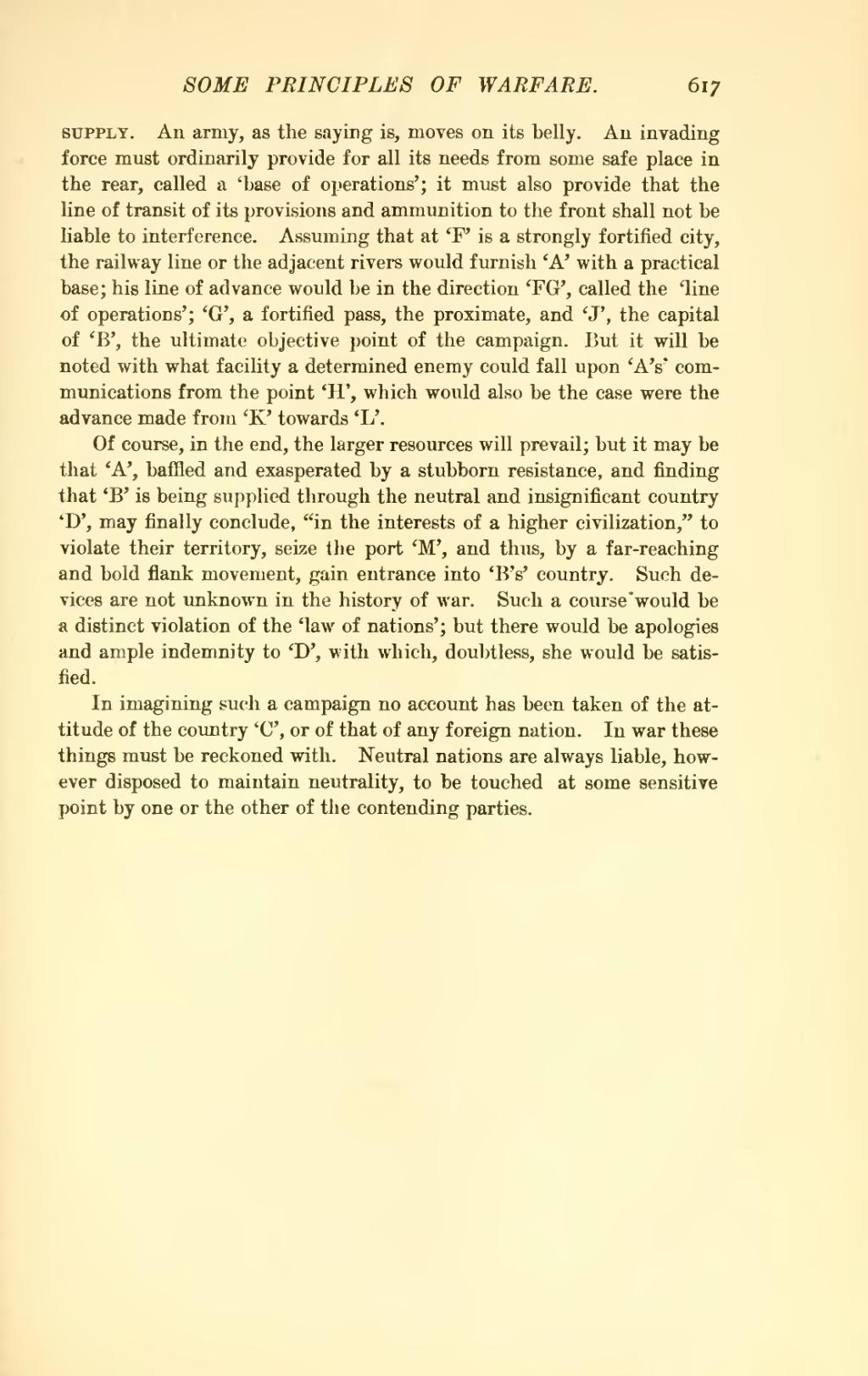supply. An army, as the saying is, moves on its belly. An invading force must ordinarily provide for all its needs from some safe place in the rear, called a 'base of operations'; it must also provide that the line of transit of its provisions and ammunition to the front shall not be liable to interference. Assuming that at 'F' is a strongly fortified city, the railway line or the adjacent rivers would furnish 'A' with a practical base; his line of advance would be in the direction 'FG', called the 'line of operations'; 'G', a fortified pass, the proximate, and 'J', the capital of 'B', the ultimate objective point of the campaign. But it will be noted with what facility a determined enemy could fall upon 'AY communications from the point 'H', which would also be the case were the advance made from 'K' towards 'L'.
Of course, in the end, the larger resources will prevail; but it may be that 'A', baffled and exasperated by a stubborn resistance, and finding that 'B' is being supplied through the neutral and insignificant country 'D', may finally conclude, "in the interests of a higher civilization," to violate their territory, seize the port 'M', and thus, by a far-reaching and bold flank movement, gain entrance into 'BY country. Such devices are not unknown in the history of war. Such a course 'would be a distinct violation of the 'law of nations'; but there would be apologies and ample indemnity to 'D', with which, doubtless, she would be satisfied.
In imagining such a campaign no account has been taken of the attitude of the country 'C, or of that of any foreign nation. In war these things must be reckoned with. Neutral nations are always liable, however disposed to maintain neutrality, to be touched at some sensitive point by one or the other of the contending parties.

